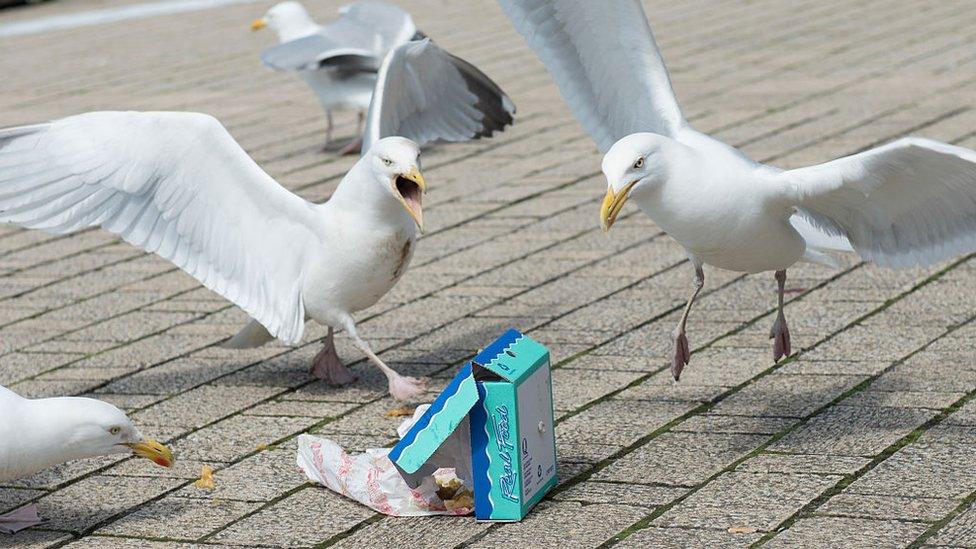Fake birds of prey trial while Senedd members are away
- Published
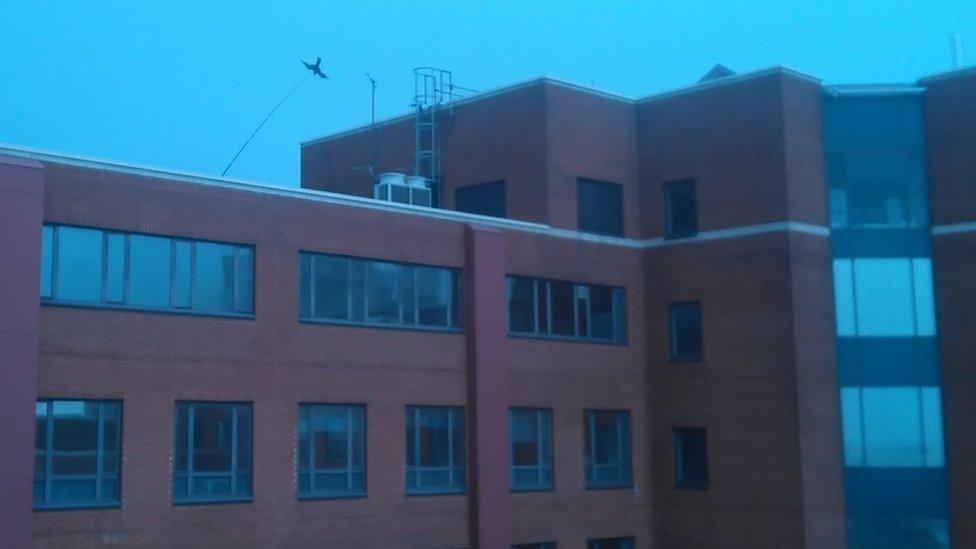
The fake birds are a recommendation from a pest control contractor
Fake birds of prey are being deployed in an effort to scare seagulls away from the Welsh Parliament's Tŷ Hywel building in Cardiff Bay.
The premises, behind the main Senedd building, has been largely empty since the start of the coronavirus lockdown.
The 60 Members of the Senedd (MSs) have been taking part in virtual sittings instead of face-to-face meetings.
The fake birds were a recommendation from the parliament's pest control contractor.
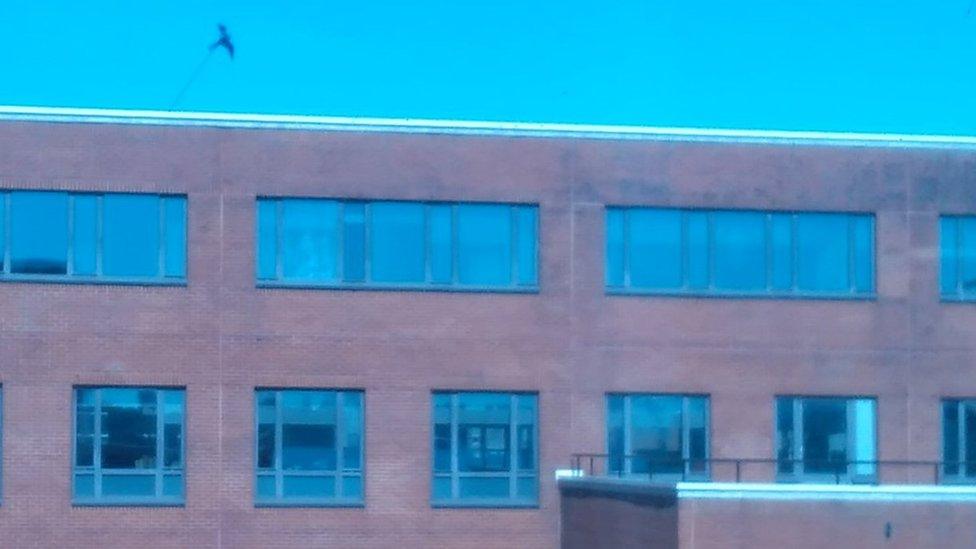
Will seagulls be deterred from nesting on the roof?
Tŷ Hywel is also usually the workplace of Members of the Senedd's support staff and the Senedd Commission's staff responsible for the day-to-day running of the institution, but they are also working from home.
A Senedd Commission spokesperson explained that "following a recommendation from our pest control contractor we're trialling them as a method of deterring seagulls from nesting on the roof".
Seagull eggs are laid from early May onward, with the first chicks generally seen about the beginning of June.
All species of gull are protected under the Wildlife and Countryside Act 1981, which makes it illegal to intentionally kill or destroy an active nest or its contents.
But the law recognises in certain circumstances control measures may be necessary, external, and licences can be issued permitting nests or birds to be destroyed if there is no non-lethal solution and if it is done to prevent serious damage to agriculture, the spread of disease, to preserve public health, preserve air safety or to conserve other wild birds.
The fake birds are simply meant to scare the seagulls away.
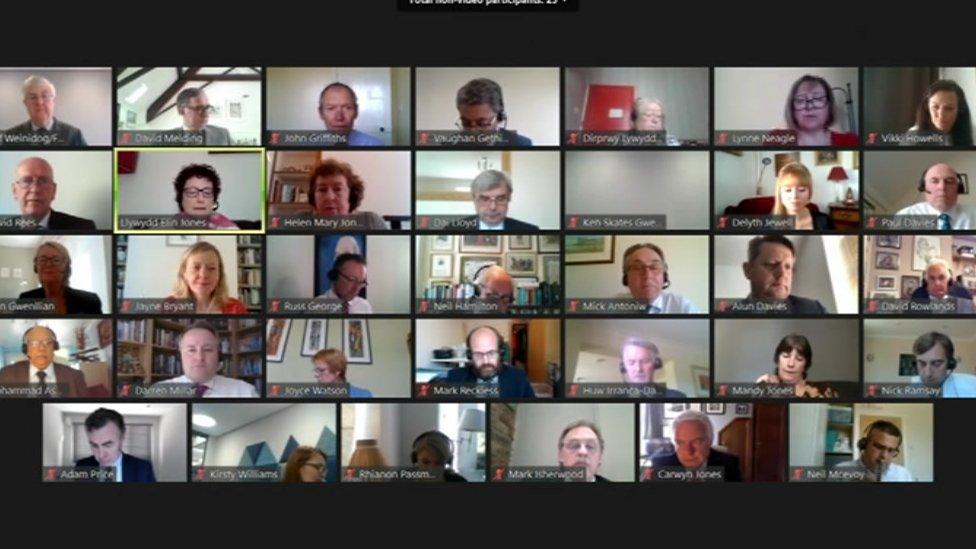
The Senedd met virtually again on Wednesday, as it has done throughout the pandemic
The National Assembly for Wales changed its name to Senedd Cymru - the Welsh Parliament earlier this month.
Tŷ Hywel is rented, while the building next door, which includes the debating chamber, is owned by the Senedd.
The Tŷ Hywel building, which houses offices and committee rooms, is owned by London-based Equitix Tiger English LP, a limited partnership registered with Companies House in December 2018.
- Published6 May 2020
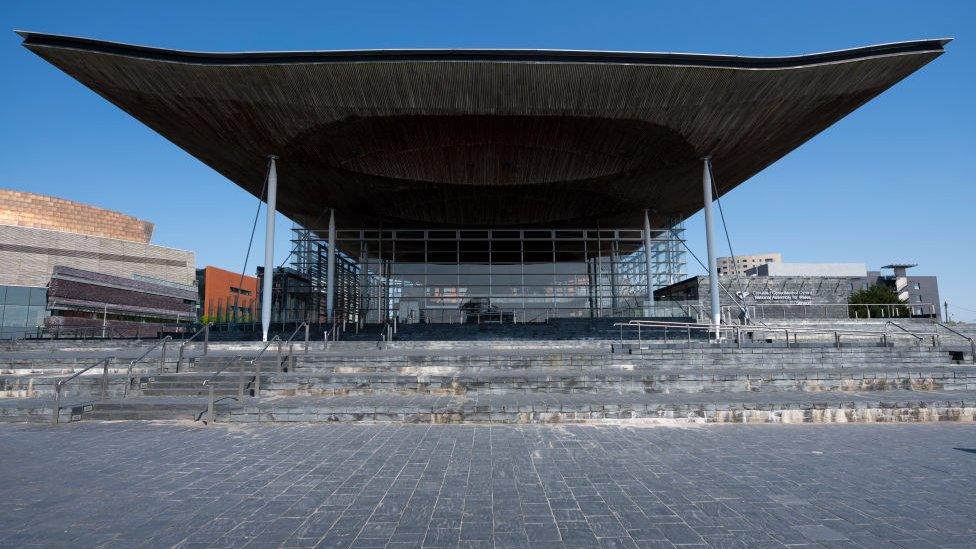
- Published20 December 2019
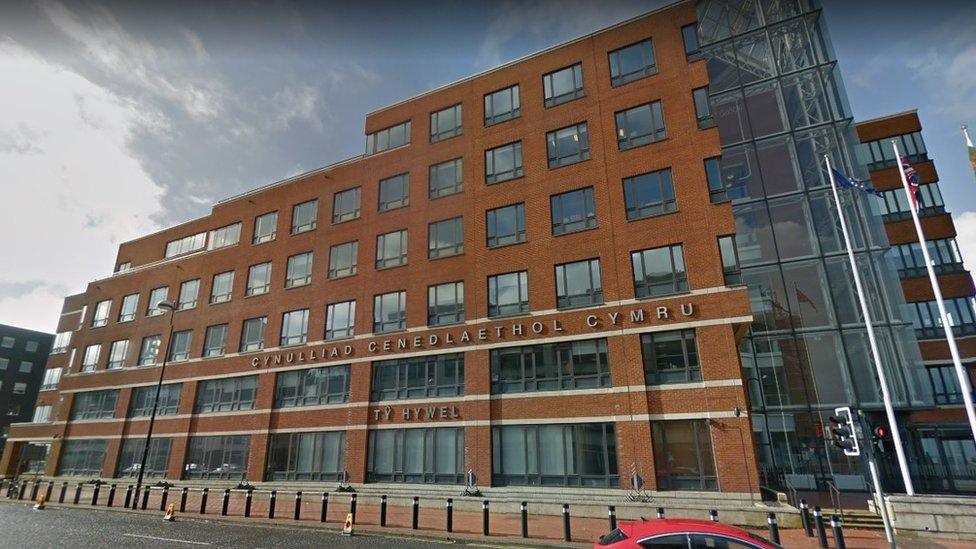
- Published24 July 2019
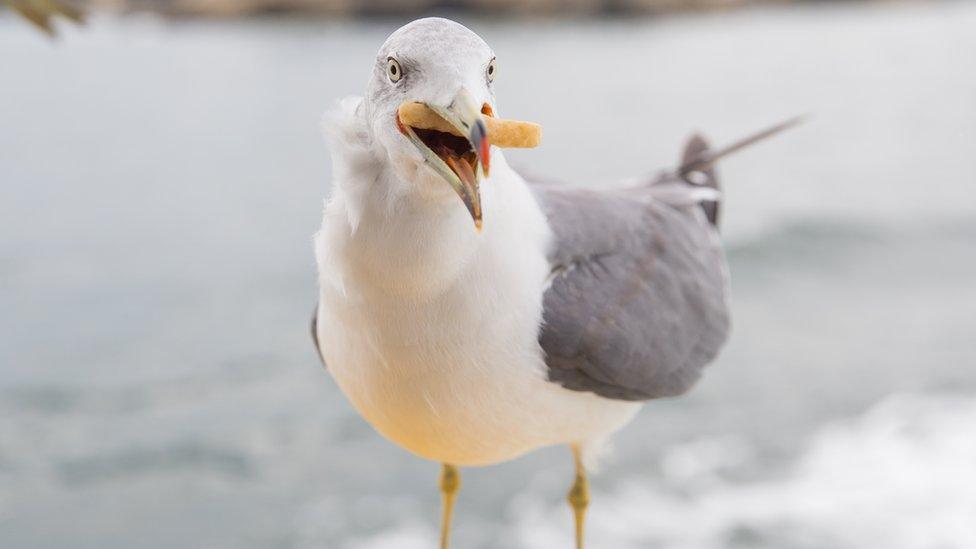
- Published31 January 2020
